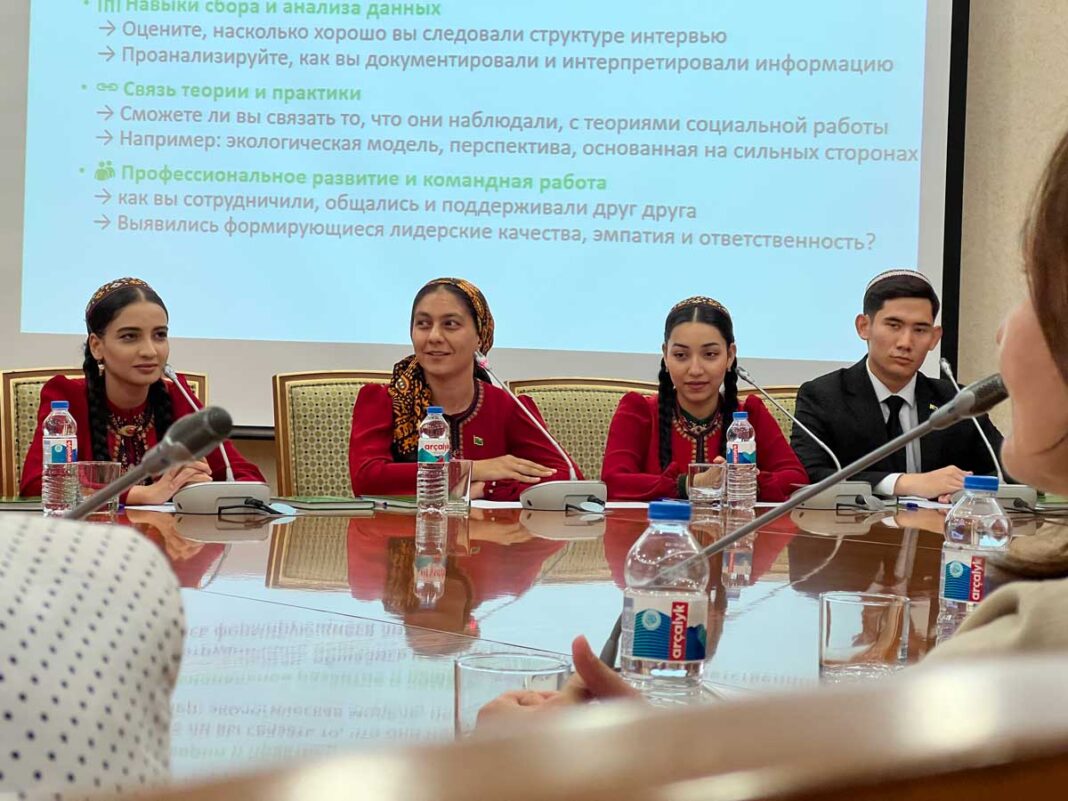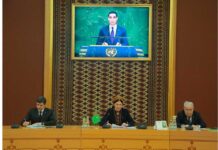UNICEF, in collaboration with the Ministry of Labour and Social Protection of the Population and the Ministry of Education of Turkmenistan, supported the academic practice of second-year Social Work students from Magtymguly Turkmen State University and Seydi Turkmen State Pedagogical Institute as part of UNICEF’s ongoing efforts to strengthen social work education and improve family-focused social services in Turkmenistan.
The goal was to contribute to joint Government-UNICEF’s research on assessing the needs of families requiring additional state support. Over the course of three weeks, 35 students conducted structured interviews with 220 families in Ashgabat, Turkmenabat, and Charjew etrap of Lebap velayat under the supervision of the university faculty and local social service professionals.
In the lead up to field work, UNICEF jointly with the MoLSP organized a series of preparatory seminars for students and faculty members. The sessions focused on introducing the goals and methodology of the research, strengthening students’ interview skills, and experience in reviewing survey tools, testing questionnaire through mock interviews. Participants also discussed ethical considerations in social research and strategies for working with families and children in vulnerable situations.
During the field phase, students worked closely with supervisors from local social service organizations, gaining hands-on experience in collecting household data. They interviewed caregivers and collected information on access to services, challenges faced by families, and types of support needed to ensure children’s well-being. As a result, the students collected valuable data that will feed into joint Government-UNICEF research aimed at informing evidence-based policies and programmes to strengthen the national social protection system.
As part of their practice, the students also examined Turkmenistan’s national approaches to social support, including the humanitarian initiatives of the Gurbanguly Berdimuhamedow Charitable Foundation for Children in Need—established by the National Leader —which plays a pivotal role in providing assistance to vulnerable families. This deepened their understanding of the country’s social protection ecosystem and how different institutions collaborate to safeguard children’s well-being.
The academic practice concluded with a certificate ceremony to recognize the students’ contribution and commitment. This work created an opportunity for the social work students to develop professional identity, connect academic learning with practice, strengthen analytical skills, as well develop understanding of how administrative processes and policies influence service delivery and the role it can play in improving the lives of children and families.
UNICEF remains committed to supporting the professional development of future social workers, strengthening university-level training, and advancing social policy reforms that leave no child behind.









